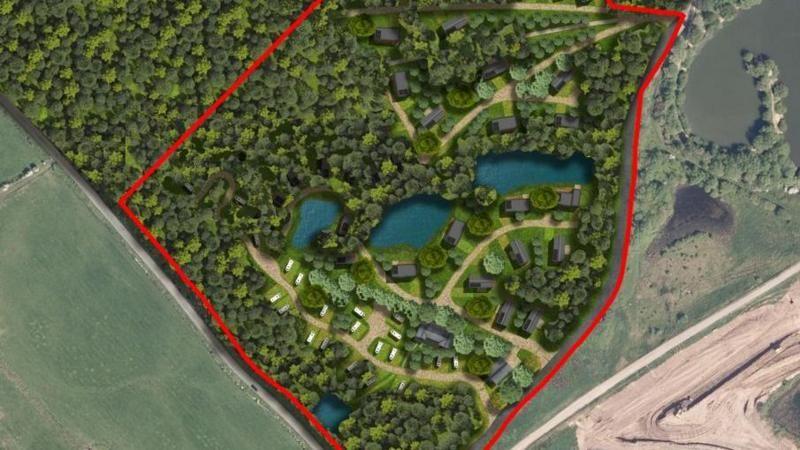Holiday park plan refused over wildlife fears
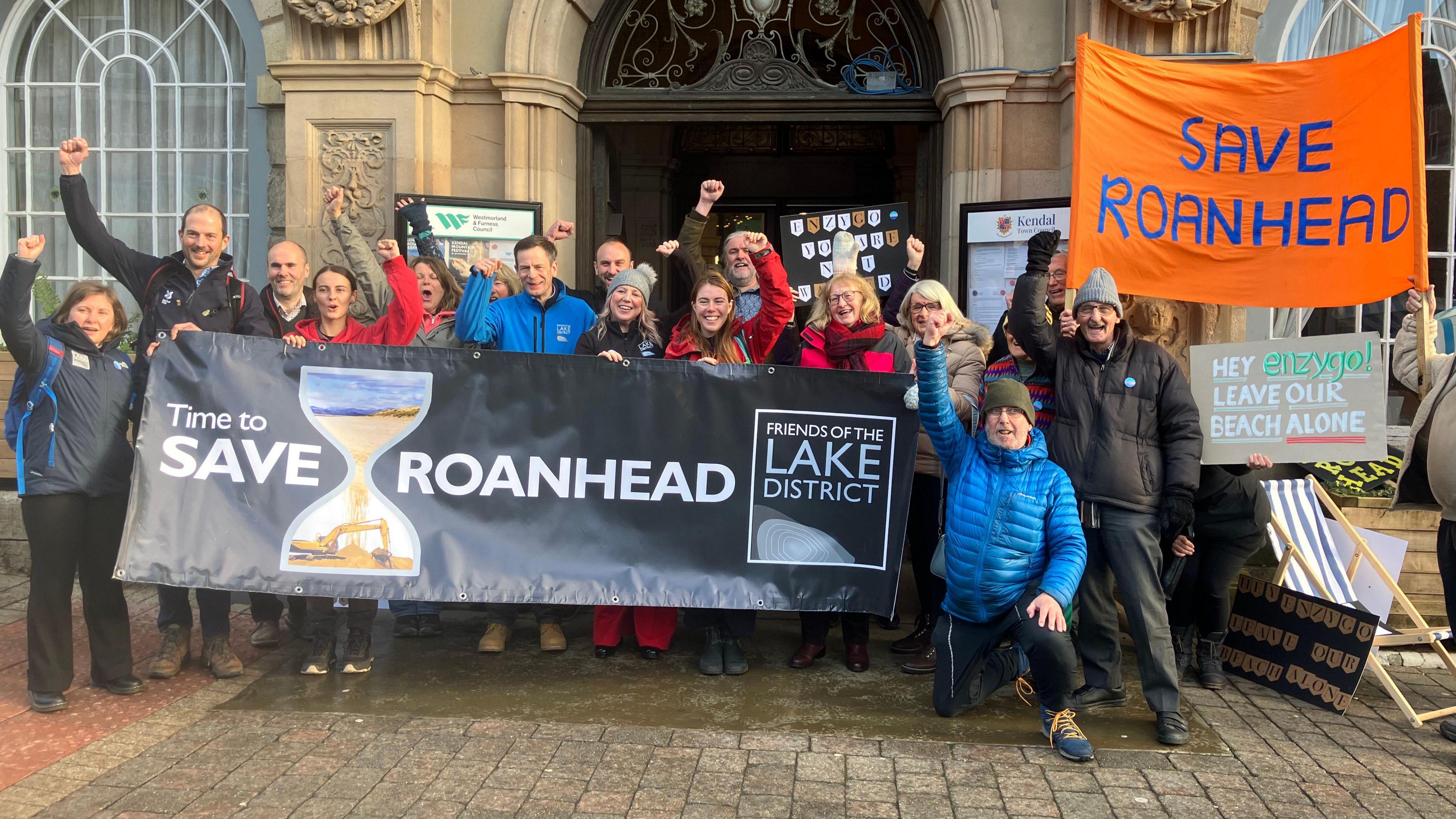
Campaigners celebrated the council's refusal of the holiday park
- Published
Plans to build a holiday resort next to a protected site have been rejected after councillors were told it would pose an "existential threat" to special wildlife.
Developer ILM Group had proposed to build 233 lodges, a spa and restaurant at Roanhead Farm, near Askam in Cumbria, but it faced opposition over concerns visitors could damage wildlife at Sandscale Haws National Nature Reserve.
More than 10,000 people signed a petition to reject the plans, which ILM said would have limited numbers of visitors to protected areas.
Westmorland and Furness Council refused plans at a meeting earlier with a vote of 6-1 against. Andrew Coutts from ILM said it hoped to appeal the "disappointing" decision.
Mr Coutts said £1.4m had been spent backing the scheme over four years, and that ILM Group had to consider if an appeal or another route was now financially viable.
The council's case officer Andrew Willison-Holt said proposals were tasteful with some social and economic merits, but "with some regret" said the authority could not rule out adverse effects to protected habitats.
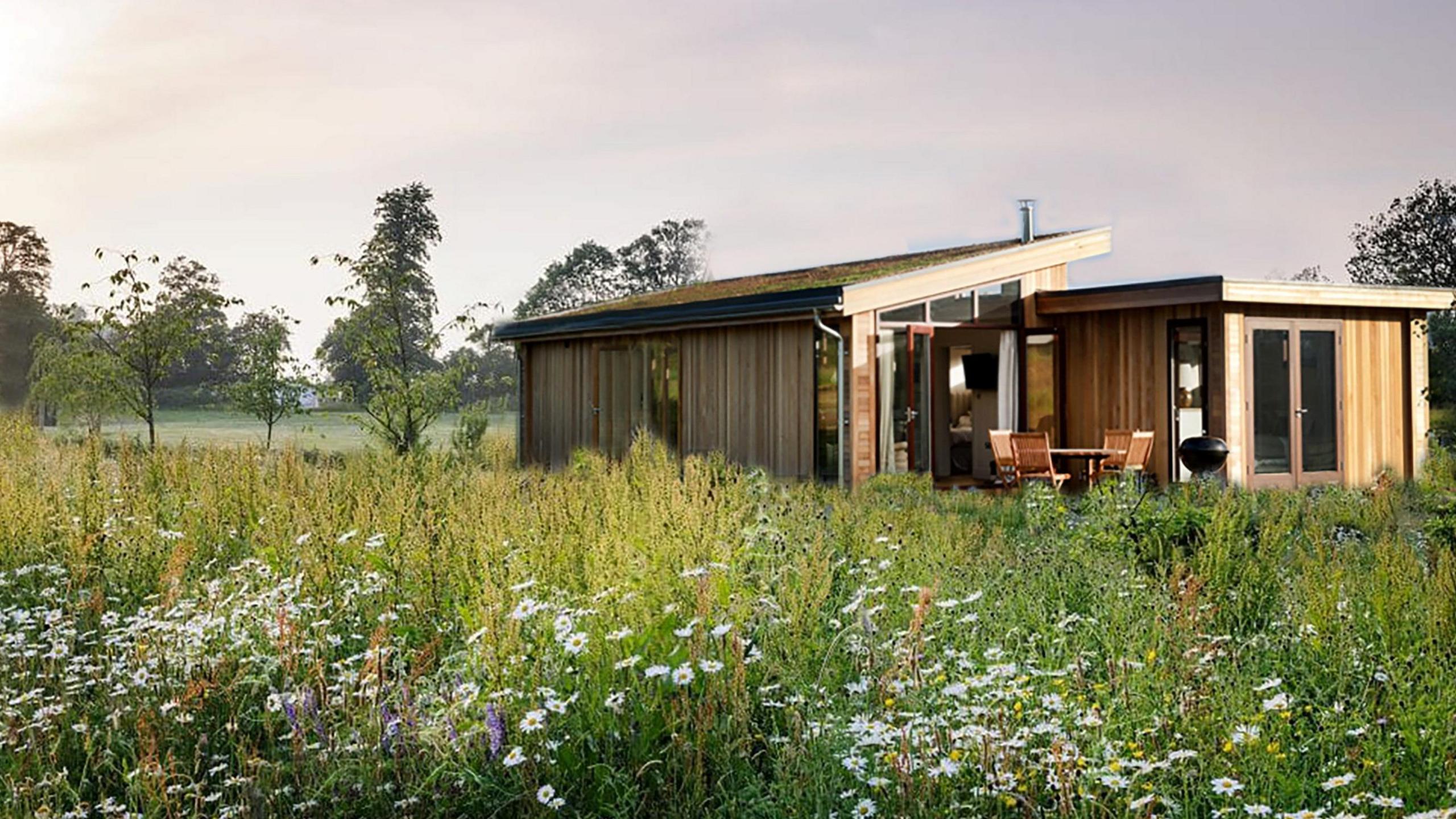
A previous plan for 450 lodges at Roanhead Farm, near Askam, has been scaled back
The Save Roanhead campaign group previously said bringing thousands of people to a national nature reserve would "cause catastrophic harm".
Objectors have also included the National Trust and Cumbria Wildlife Trust, while Cumbria Tourism was among the supporters.
Dan Taylor, general manager of the National Trust's portfolio of properties which includes the Sandscale Haws National Nature Reserve, told councillors developing on a "sensitive location poses an existential threat to this much loved reserve".
Mr Taylor said the reserve was home to more than 600 flowering plant species and 500 species of fungus, lichen and bryophyte, as well as a range of wintering, migratory and breeding birds, with the dunes supporting 25% of the UK population of natterjack toads.
"We want to ensure that local people can continue to enjoy this special place for generations to come, balancing our conservation work to safeguard a very sensitive ecosystem whilst providing a warm welcome for the community with a very small car park," he said.

Jeremy Smith said he did not see how developers could now appeal following the decision
Jeremy Smith, head of campaigns and engagement at landscape charity Friends of the Lake District, said he was hopeful "this is the end of the road".
Speaking after the meeting, he said: "They do have the right to appeal but I don't think they are ever going to be able to get away with the fact that the location doesn't really allow for this sort of development."
The plans for the coastland, which has views across the protected habitat of the Duddon Estuary to the Lake District fells, have been rumbling on for years.
Three years ago, an application for 450 lodges at the site led to 3,700 letters and a 7,000-signature petition opposing the scheme.
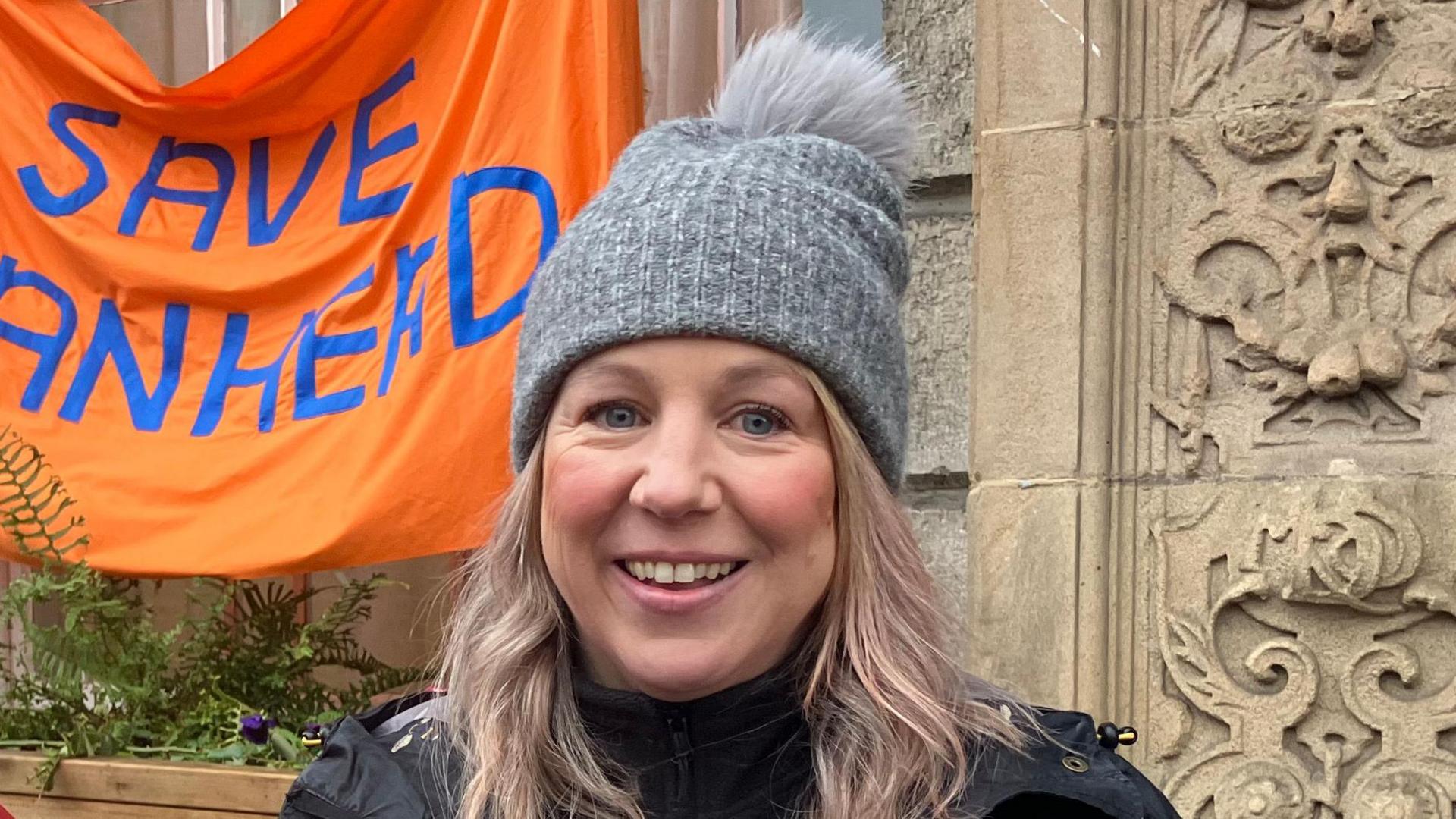
Leanne Parr said if the plans went ahead they would significantly impact wildlife
Friends of the Lake District planning officer Leanne Parr said she had never seen so much "strength of objection" in her 20-year career as a planner.
"I'm from Barrow so I know what a special place Roanhead is," she said.
"If it did go ahead there would be adverse impacts on wildlife, adverse impacts on landscape and local communities as well."
Ged Andrews, who has been involved in the Save Roanhead campaign, said it was an "inappropriate" application because it was not required or needed.
"It is not going to benefit the area, the only thing it is going to do is take away," he said.
"We need people to understand more about our natural habit, visit, learn, educate but don't destroy."

Campaigner Ged Andrews said the resort would not have benefitted the area
Previously, ILM and its consultants Enzygo said the resort would "not adversely affect" the nearby beach, and said its landscaping work aimed to improve biodiversity on the site itself, the farmland that is outside the nature reserve.
The council's habitats regulations assessment concluded the development would likely have a significant effect on protected areas, including Sandscale Haws, Morecambe Bay, the estuary and ancient woodland.
It would, it previously said, significantly increase visitors to the "severe detriment" of a landscape valued for its "isolation, wildness and tranquillity".
Follow BBC Cumbria on X, external, Facebook, external, Nextdoor and Instagram, external.
Get in touch
Do you have a story suggestion for BBC Cumbria?
- Published9 November
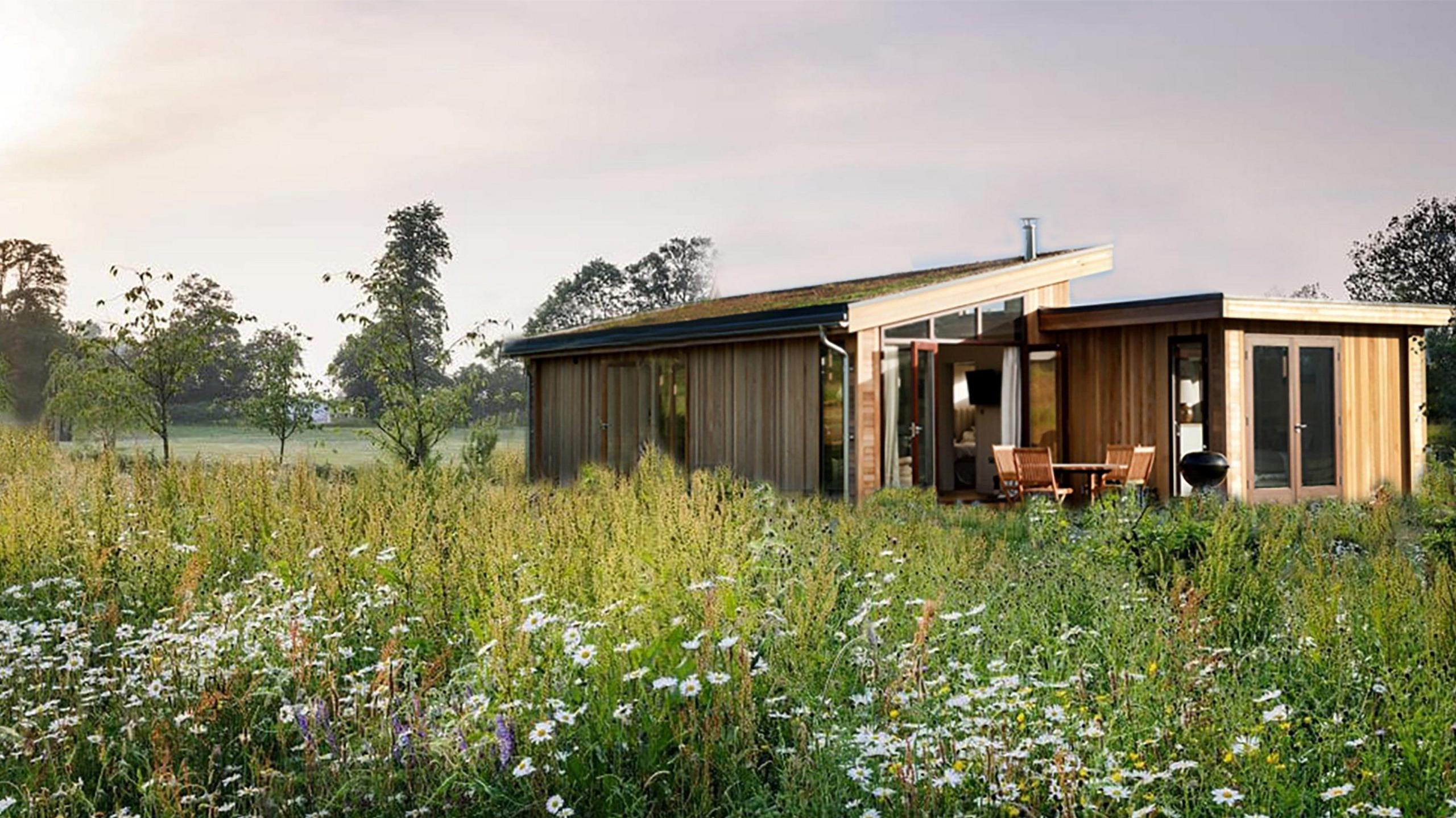
- Published2 September
